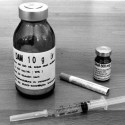Call
888-647-0579
to speak with an alcohol or drug abuse counselor.
Who Answers?
Addiction Science
It’s challenging for some to understand why addiction affects one individual and not the next. In fact, even doctors and treatment professionals are sometimes at a loss of words when it comes to explaining the science behind addiction and what it is that makes some people become addicted to drugs or alcohol while others steer clear of the problem. Scientific advances have helped doctors, treatment professionals and others to better understand the science behind addiction and continued research embarks on the consistent journey to discover more about what it is that causes addiction and addictive behaviors.
People of all ages suffer the harmful consequences of drug abuse and addiction.
The National Institute on Drug Abuse, NIDA, estimates that the total cost of addiction to drugs, alcohol, nicotine and illegal substances is upwards of half a trillion dollars each year in America alone. This includes the impact that drug abuse and addiction has on the economy, the criminal implications that arise from addiction, the medical needs that result and the overall social impact of addiction. More than half a million people die as a result of addiction related causes each year in the United States.
The Science Behind Addiction
There are a number of ways that science has helped to provide solutions for those who are addicted to drugs or alcohol. Scientists study the ways that drugs, alcohol and other substances affect the brain and how these chances impact human behavior. The information that is gained helps in making better judgment calls when it comes to addiction treatment and also when it comes to finding new methods of helping people to effectively recover.
Addiction is a chronic disease that is characterized by changes in the brain which result in a compulsive desire to use a drug. Through science, it has been determined that an individual’s risk of becoming addicted can be influenced by a number of factors including both genetics and environmental influence. Addiction science focuses on taking a closer look at how all of these factors, everything from biology to the environment to family, influence people to used drugs or alcohol and to potentially become addicted.
Like it or not, Wisconsinites are known for loving beer about as much as their passion for cheese. Some studies, though, are showing that this alcohol-enamored mentality isn’t exclusive to the Dairy State’s adults. As a result, some groups are organizing efforts to curb underage drinking among Wisconsin’s youth. One such event-called “The Plunge”-was held….
Continue reading ›
We love quick, tidy solutions in this country. With health problems, in particular, we’re impatient. Pills to ease each and every symptom? Great. Same-day surgery? Terrific. A scheduled cesarean section? Bring it on. ¶ But in the case of drug and alcohol dependence, it’s becoming increasingly clear that there is no such thing as get-well-quick….
Continue reading ›
According to an Australian researcher women recovering from alcoholism are in danger of relapsing between age 35 and 55 due to the increased pressure from family and work commitments. Ms Janice Withnall, who is three years into a PhD on the experiences of women who are recovering from alcohol dependency, says women are at a….
Continue reading ›
Parents are willing to have their children’s doctors screen the adults for alcohol problems and make a recommendation about what to do, a study found. The American Academy of Pediatrics has recognized the child health care visit as a good place to deal with family issues, but there was little information about how parents would….
Continue reading ›
Report found a 67.7 percent reduction in illicit drug use over a six month period among people receiving these services The Screening, Brief Intervention, and Referral to Treatment (SBIRT) program can reduce illicit drug use among patients seeking medical care in a wide variety of health care settings such as hospitals, physician offices, and community….
Continue reading ›
Scientists at the University of Liverpool have found that a genetic mutation in worms could further understanding of alcoholism in humans. The work follows a study carried out by Oregon Health and Science University, which suggested a link between a gene mutation in mice and tolerance to alcohol. Researchers at Liverpool have investigated this in….
Continue reading ›
Studies in recent years have demonstrated that binge drinking can decrease bone mass and bone strength, increasing the risk of osteoporosis. Now a Loyola University Stritch School of Medicine study has found a possible mechanism: Alcohol disturbs genes necessary for maintaining healthy bones. The findings could help in the development of new drugs to minimize….
Continue reading ›
A University of B.C. epidemiologist says there is now evidence to support a heroin-assisted addictions therapy clinic in Vancouver. The North American Opiate Medication Initiative, or NAOMI, study was a Vancouver and Montreal-based clinical trial assessing how patients respond to heroin, methadone and other opiate treatment. The three-year study treated 251 of the most chronically….
Continue reading ›
As people age, they may tend to mix alcohol with prescription drugs. Disaster can ensue. Research suggests alcoholism among the elderly may not be diagnosed or is simply overlooked. Todd Wagner, clinical director at Blue Mountain Counseling in Dayton, said alcoholism among seniors is a growing problem, often going unnoticed. Maybe providers aren’t asking seniors….
Continue reading ›

VANCOUVER — A clinical trial that prescribed heroin to drug addicts found that users did not appear to distinguish the powerful street drug from a legally available prescription painkiller, researchers say. And that offers hope of a treatment option that is legally and politically more palatable than providing drug addicts with heroin, they say. Users….
Continue reading ›
